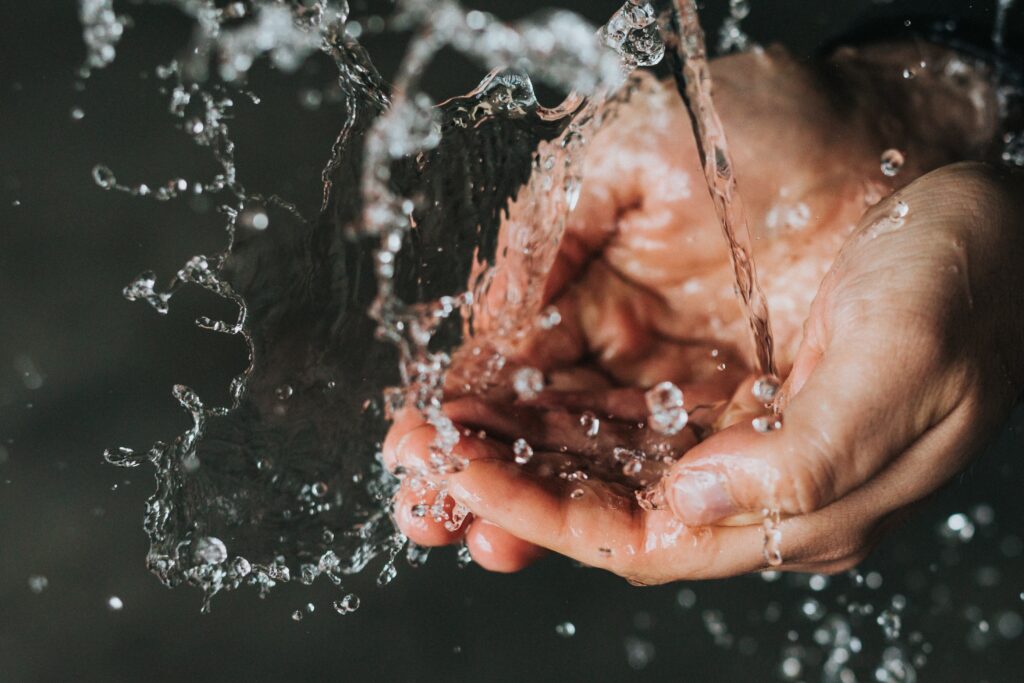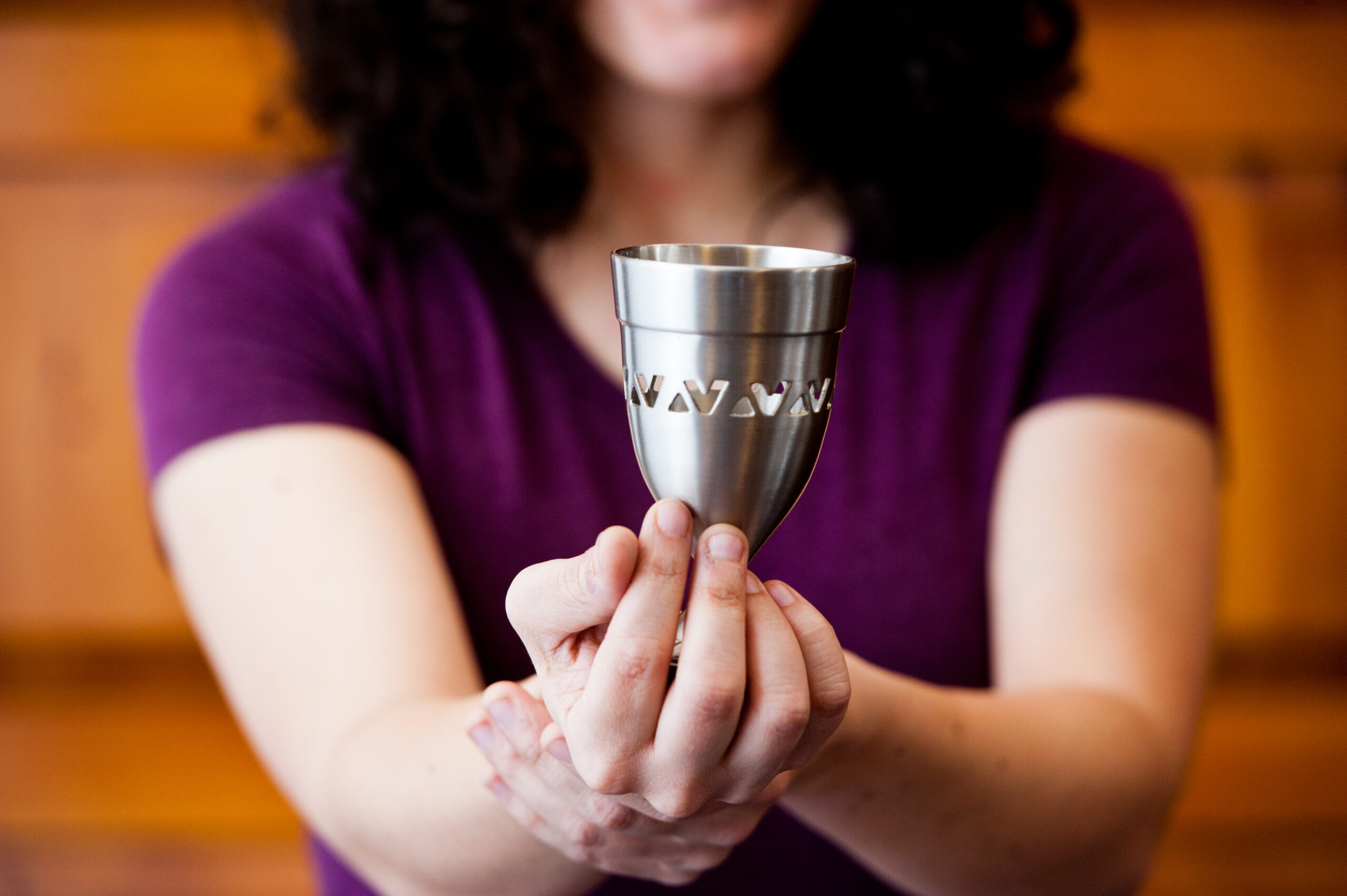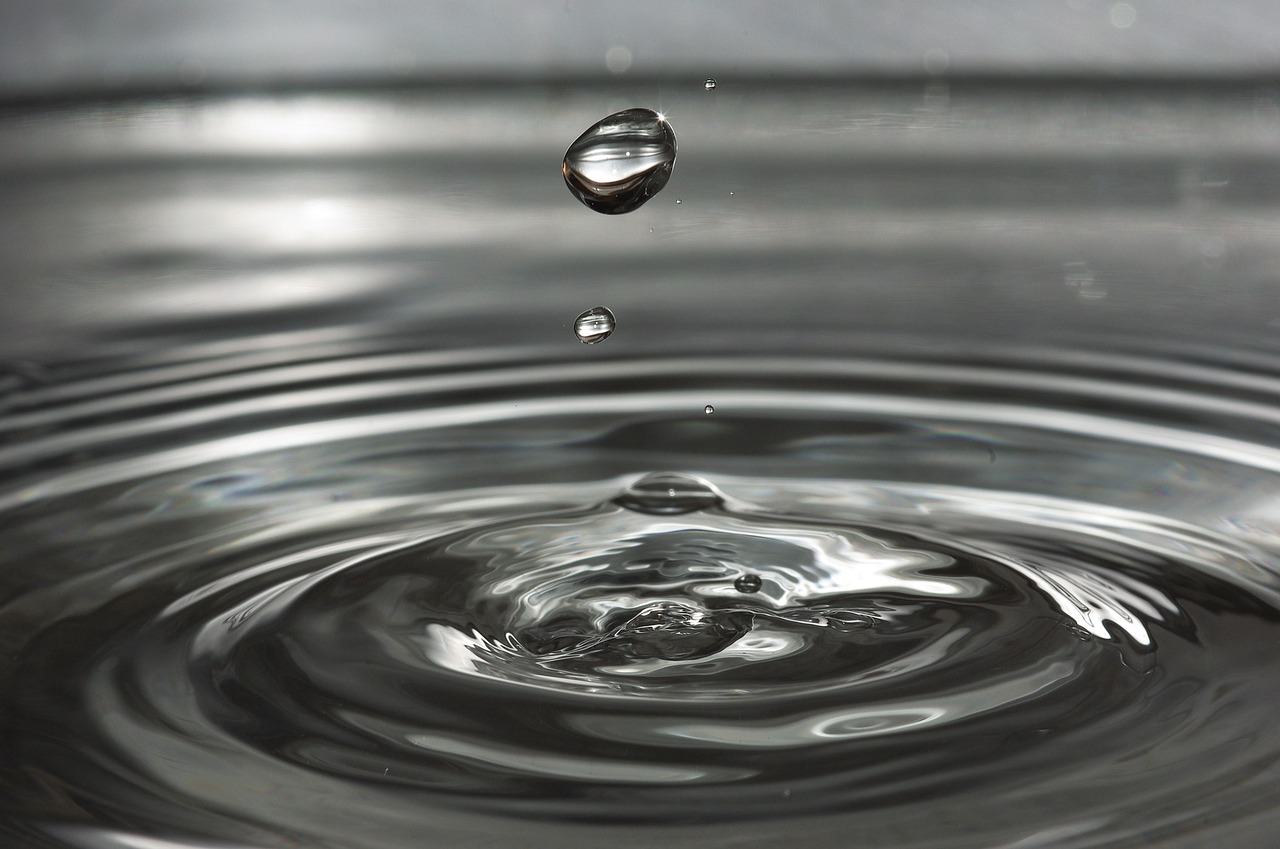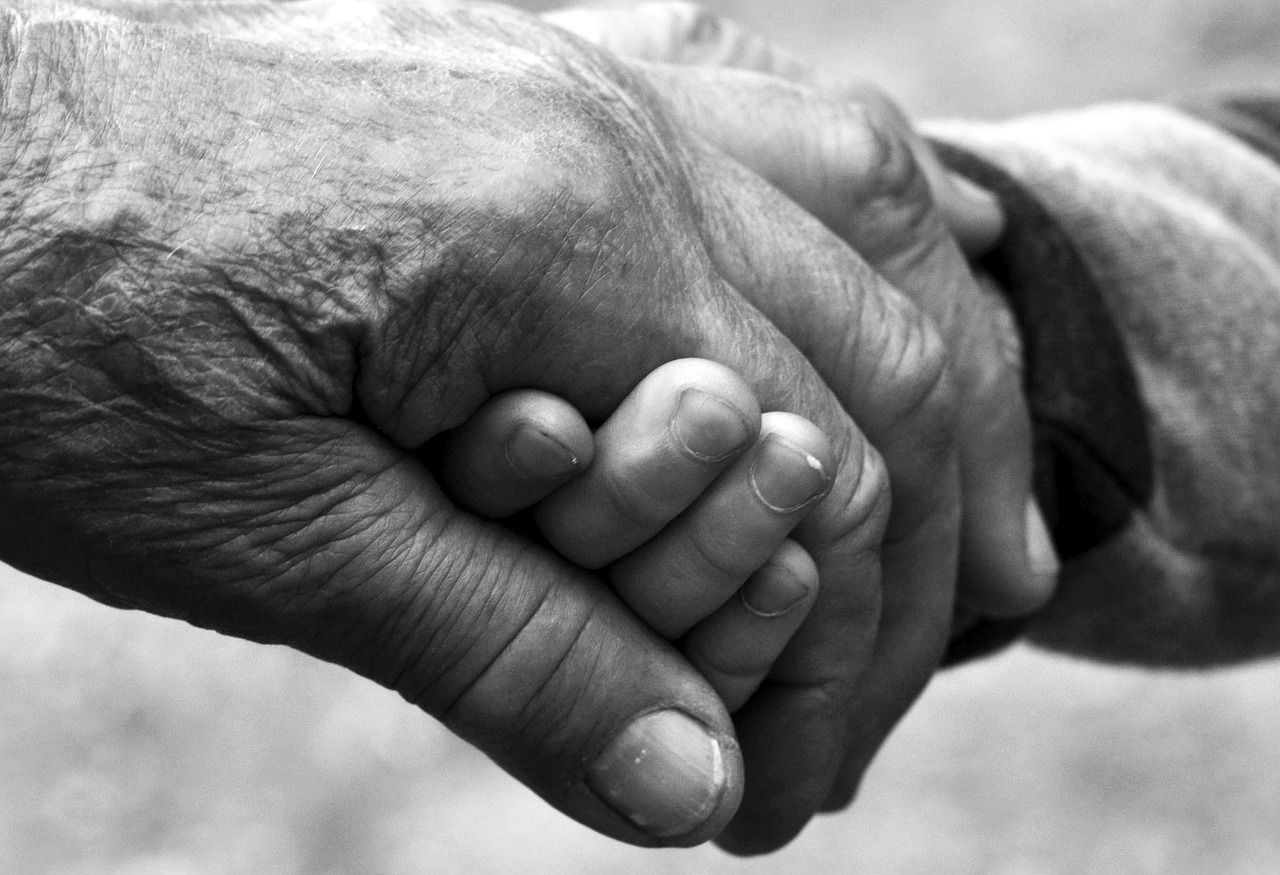Moving Traditions invites you to slow down while you wash your hands at the start of your seder; and contemplate the depth contained in this underappreciated ritual. Handwashing has the power to set the tone for the evening, helping lift up acts of self-care, connection, belonging, and gratitude — all essential elements to our overall wellbeing.
Prepare
Before the seder, prepare to pass around a cup for pouring water, a bowl to catch the water, and some towels for drying hands.
At the seder, leader or another reader begins:
As we move into this second step of the seder, the ritual of washing our hands without a blessing, let us set the intention for a seder that supports the wellbeing of each of us gathered here tonight.
Kli / Vessel
Raise the water cup and say:
The first vessels used for ritual handwashing during the time of the ancient Temple were made of bronze. The Zohar, a foundational Jewish mystical text, teaches that bronze has the attribute of compassion, rakhamim. As we lift the vessel of water, may we have a moment of compassion, for ourselves and others, and bring this attribute to our seder.
Mayyim / Water
Begin to pour the water three times over each hand, and invite another participant to read the following meditation:
As we pour water on our hands, we recall the prophet Miriam, Moses’ sister. It is taught that wherever she walked, a wellspring of water traveled with her. Even in the barrenness of the desert, she remained connected to the life-giving energy of the natural world. Think for a moment how you are connected to the natural world – to the spring season and its awakening – and to the ways that the natural world nourishes both body and spirit.
Shifshuf / Rubbing
After the water is poured, it is customary to rub the hands together to ensure that water covers every part of our hands. While this is done, ask someone to read the following:
Rabbi Toba Spitzer writes that water is a fruitful image for God. She writes, “Water does not command or judge – it flows and irrigates, nourishes and sustains.” As we rub our hands together and shake off the water, we can each consider how we might, even at this seder tonight, move away from a commanding and judging stance toward a more nourishing and sustaining way of being with one another.
Netilah / Lifting
The final act of hand washing is lifting the hands. As the hands are lifted, have someone share this reflection:
The 19th-century teacher the Sfat Emet taught that we raise our hands at the end of handwashing to emulate the way that Aaron, the high priest, would lift his hands to thank all those who helped him to do his sacred work of leading the community. Aaron was the brother of Moses and Miriam. He is known as a rodef shalom, a pursuer of peace. As we lift our hands after the washing, let us express gratitude for those who helped make this seder possible – and for anyone else in our lives who has helped us recently in a way that made a difference.












